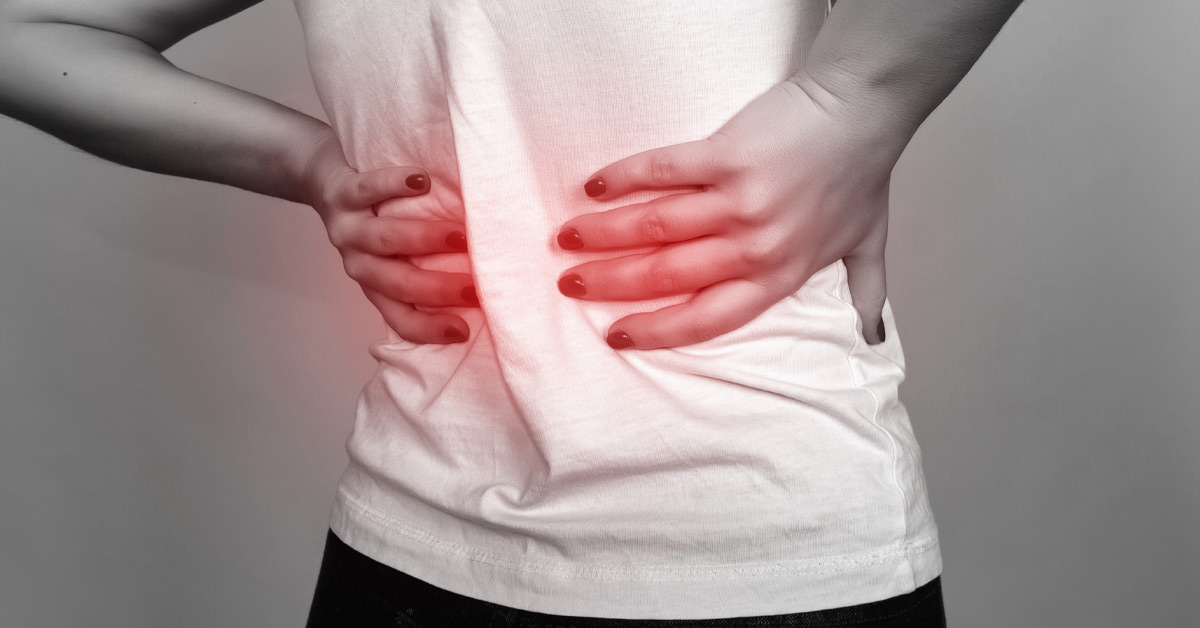5 Herniated Disc Symptoms You Should Know

Your spine is made up of a series of stacked bones called vertebrae, with discs in between. These discs have a gel-like center surrounded by a tough outer shell.
Spinal discs play an essential role in the structure and function of the spine. They cushion your vertebrae during everyday activities and enable a range of movements such as bending forward, side-to-side, and rotating.
Sometimes, a disc can become worn or injured.
When the gel-like center of the disc pushes through its outer layer, it is called a herniated, ruptured, or slipped disc. When the protrusion presses on nearby nerves, it can lead to pain and discomfort.
What Causes a Herniated Disc?
Usually, herniated discs occur in the lower back or neck area. Some common causes include:
Injury
- Age-related changes
- Repetitive motions or activities
- Strain or overuse
- Having extra body weight
Herniated Disc Symptoms
Identifying the signs of a herniated disc goes beyond just recognizing a back issue; it’s about understanding the problem and taking the necessary steps to prevent further complications or chronic back pain. Five herniated disc symptoms you should know include:
1. Discomfort in the back or neck.
Disc pain is typically the result of nerve pressure due to disc herniation.
- Low back pain: If the affected disc is in your lower back, you may experience pain that worsens upon standing, walking, or sitting. It may be sharp or electric-like, radiating into the buttock or down one side of the leg, a condition known as sciatica.
- Neck pain: Similarly, a herniated disc in the neck may result in neck and radiating arm pain.
2. Weakness.
If nerves get squeezed, it can result in muscle weakness. If you feel these symptoms extending down a leg or foot, it likely points to pinched nerves in the lower back.
Conversely, if the weakness extends down your arm to your hand or fingers, it suggests a disc may be pressing on the nerves in your neck.
3. A burning or prickling sensation.
Another symptom associated with a herniated disc is a burning or prickling, commonly called a “pins and needles” sensation. The medical term for this is paresthesia, and the feeling occurs when pressure from a herniated disc interrupts the nerve’s ability to send information back to the brain.
4. Trouble with movement.
If a herniated disc puts pressure on nerves, it can affect your ability to move. You may experience difficulty walking, reduced grip strength, and trouble holding onto objects. You might notice changes in your gait or have difficulty standing for prolonged periods.
5. Cauda Equina Syndrome (CES).
The term “cauda equina” refers to a bundle of nerve roots at the end of the spinal cord. Compressing these nerves can lead to loss of sensation in the groin area, thighs, buttocks, or genitals. You may experience pain and weakness in your back or legs.
Changes in bowel or bladder habits may also become apparent and can involve issues such as loss of bowel control, difficulties with urination, or urine leakage.
CES can happen due to a large disc herniation in the lower back region. It is a medical emergency and may require immediate surgical intervention to relieve nerve pressure. Delaying treatment may result in chronic pain, incontinence, or, in severe cases, paralysis.
What Can I Do If I Have Symptoms?
If you think you may have herniated disc symptoms, it is essential to consult a neurosurgeon or physiatrist for an accurate diagnosis and appropriate treatment.
Your doctor will perform a series of examinations to assess your level of pain, sensation, muscle strength, and reflexes. They may also conduct imaging tests to confirm the presence of a slipped disc and rule out other causes for the pain or discomfort you’re experiencing.
Herniated disc treatments will vary depending on the severity of your herniated disc. Your doctor may offer recommendations that include:
- Medication. Anti-inflammatories, pain relievers, and muscle relaxants may be options for symptom relief.
- Physical therapy. A physical therapist can guide you through
- designed to improve circulation, loosen muscles, and reduce pressure on your nerves.
- Steroids. Spinal injections may be administered directly into the affected area to relieve pain and reduce swelling at its source.
- Surgery. Surgery is often needed for larger herniated discs that may affect bowel and bladder functions or control. However, when other treatments don’t work, there are several surgical options that can be considered. These include:
Back pain symptoms shouldn’t be ignored. Learn more about disc herniation prevention and treatment by scheduling a consultation with our specialists today.

